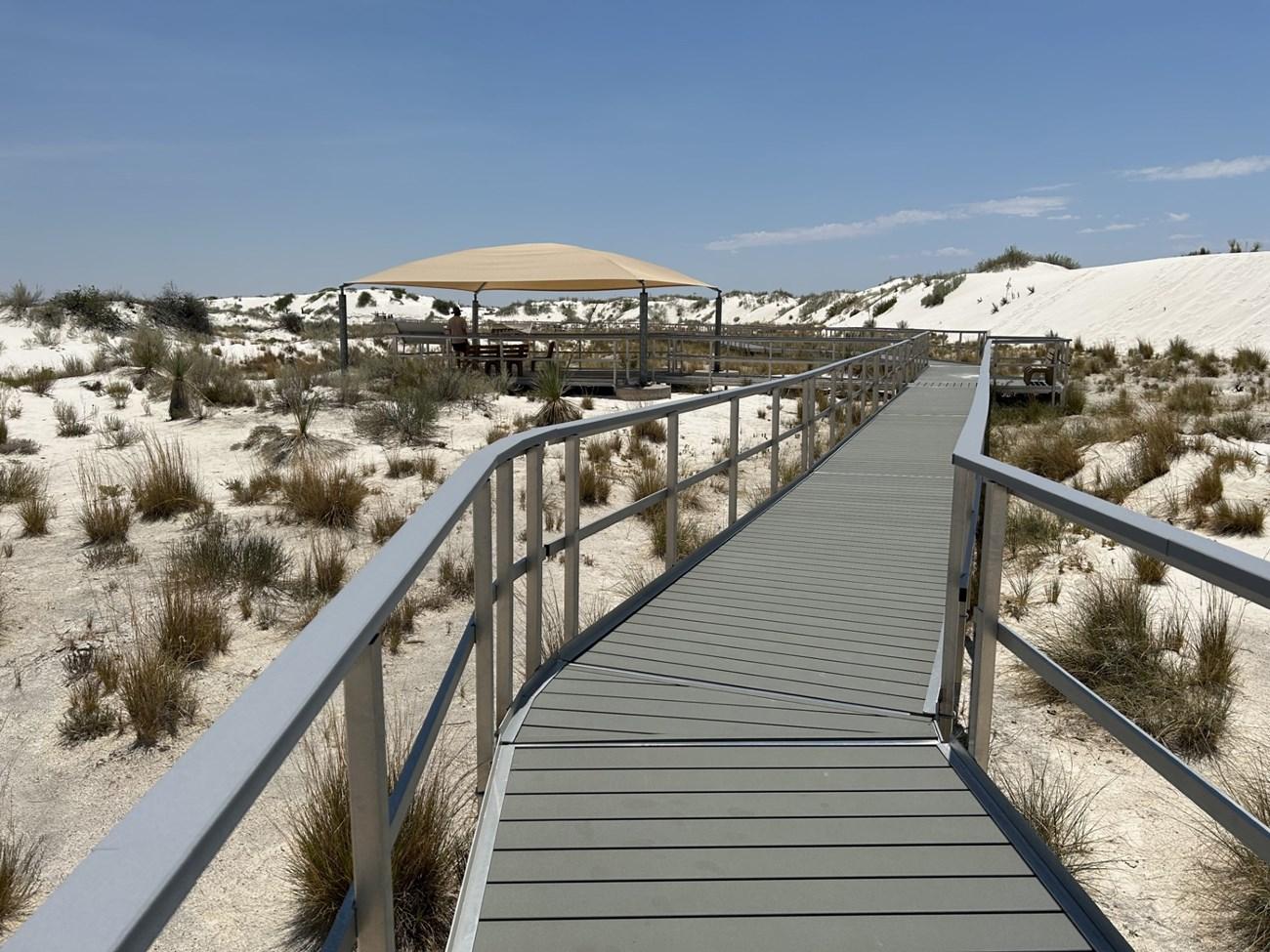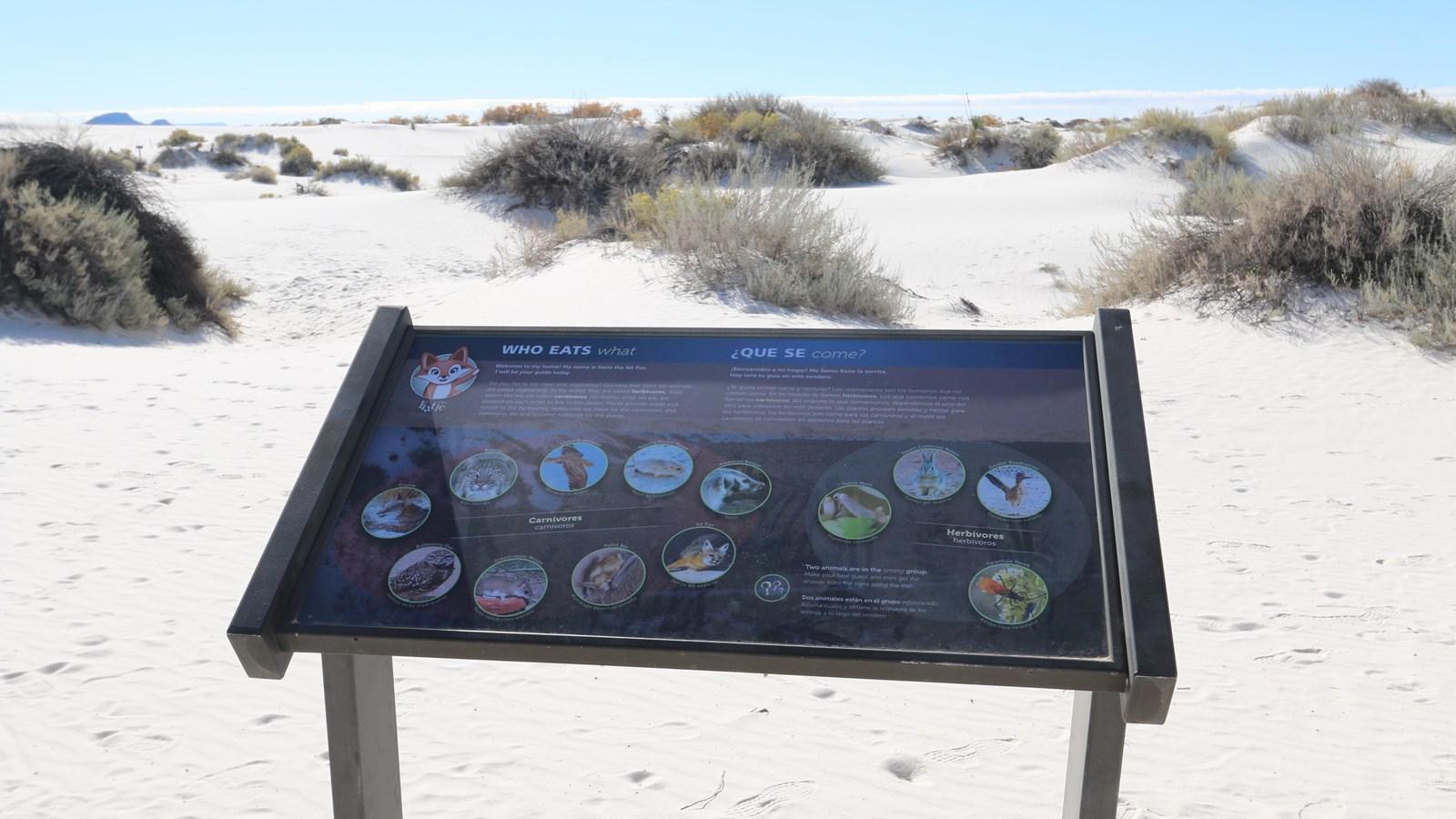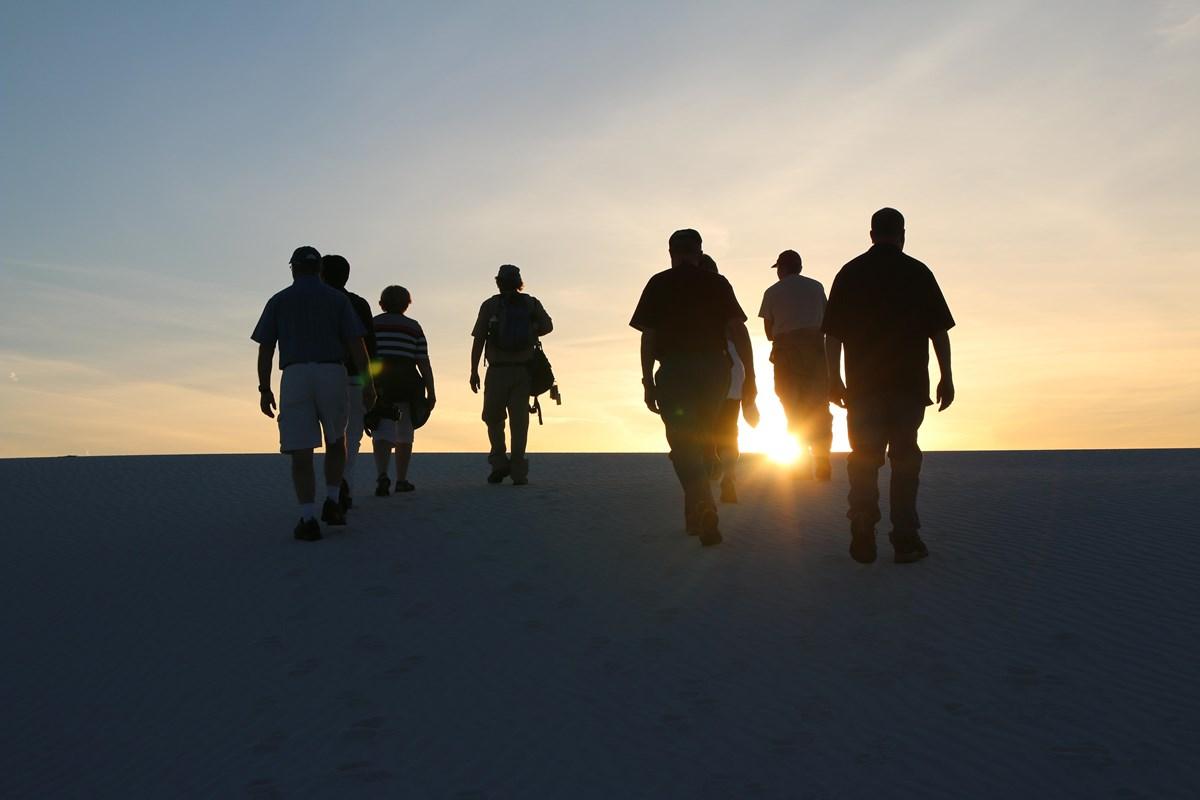
The Dazzling White Sands National Park
White Sands National Park is a mesmerizing natural wonder located in the heart of New Mexico. This unique destination features a vast expanse of glittering white gypsum sand dunes that stretch as far as the eye can see. The park covers 275 square miles, making it the largest gypsum dune field in the world. Visitors are often struck by the surreal beauty and serene atmosphere of the landscape, which glistens under the bright sun and changes hues during sunrise and sunset. The park offers a range of activities for outdoor enthusiasts. You can hike on several well-marked trails that take you through different parts of the dunes, each offering its own unique perspective of the landscape. One of the most popular trails is the Alkali Flat Trail, a challenging 5-mile loop that rewards hikers with stunning panoramic views. For a more leisurely experience, the Interdune Boardwalk provides an easy and accessible way to explore the area. White Sands National Park is also a great spot for picnicking and stargazing. The clear, unpolluted skies make it an ideal location for observing the night sky. During certain times of the year, the park offers guided full moon hikes, giving visitors a chance to experience the dunes in a whole new light. Whether you're an adventure seeker or someone looking to relax in a beautiful setting, White Sands National Park has something to offer for everyone.
Local tips in White Sands National Park
- Visit during early morning or late afternoon to avoid the midday heat and capture the best photos.
- Bring plenty of water and sun protection, as the reflective white sand intensifies the sun's rays.
- Check the park's schedule for ranger-led programs, including full moon hikes and sunset strolls.
- Wear sturdy footwear to navigate the shifting sands comfortably.
- Stay on marked trails to protect the fragile desert ecosystem.
The Dazzling White Sands National Park
White Sands National Park is a mesmerizing natural wonder located in the heart of New Mexico. This unique destination features a vast expanse of glittering white gypsum sand dunes that stretch as far as the eye can see. The park covers 275 square miles, making it the largest gypsum dune field in the world. Visitors are often struck by the surreal beauty and serene atmosphere of the landscape, which glistens under the bright sun and changes hues during sunrise and sunset. The park offers a range of activities for outdoor enthusiasts. You can hike on several well-marked trails that take you through different parts of the dunes, each offering its own unique perspective of the landscape. One of the most popular trails is the Alkali Flat Trail, a challenging 5-mile loop that rewards hikers with stunning panoramic views. For a more leisurely experience, the Interdune Boardwalk provides an easy and accessible way to explore the area. White Sands National Park is also a great spot for picnicking and stargazing. The clear, unpolluted skies make it an ideal location for observing the night sky. During certain times of the year, the park offers guided full moon hikes, giving visitors a chance to experience the dunes in a whole new light. Whether you're an adventure seeker or someone looking to relax in a beautiful setting, White Sands National Park has something to offer for everyone.
When is the best time to go to White Sands National Park?
Iconic landmarks you can’t miss
White Sands Visitor Center
Discover the stunning beauty and unique wildlife of White Sands National Park at the White Sands Visitor Center, your gateway to a surreal desert landscape.
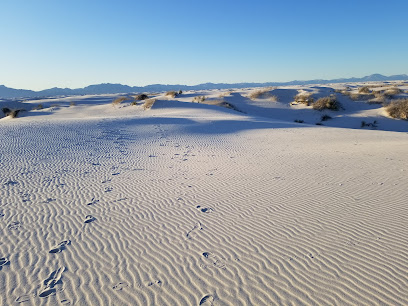
White Sands Missile Range Museum
Explore the legacy of military and aerospace history at the White Sands Missile Range Museum, where innovation and heritage meet in New Mexico's captivating landscape.
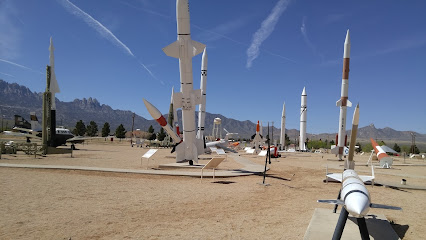
Interdune Boardwalk
Experience the breathtaking beauty of the Interdune Boardwalk at White Sands National Park, a stunning hiking area offering unique desert landscapes and wildlife.
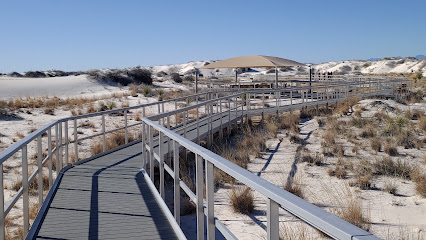
Sunset Stroll Meeting Area
Explore the breathtaking beauty of Sunset Stroll Meeting Area in Tularosa, NM, a serene hiking destination perfect for nature lovers and outdoor enthusiasts.
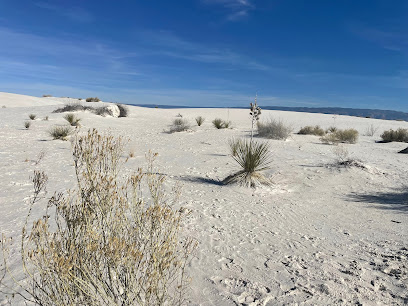
White Sands Historic District
Explore the enchanting White Sands Historic District, where stunning landscapes meet rich history in New Mexico's captivating desert.
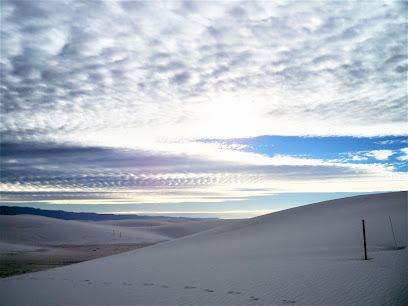
White Sands
Experience the breathtaking beauty of White Sands National Park, a natural wonder in New Mexico with stunning dunes and outdoor adventures.

White Sands Gate
Explore the breathtaking landscapes of White Sands Gate, a unique natural wonder in New Mexico, perfect for adventure and relaxation.

Unmissable attractions to see
White Sands Visitor Center
Explore the breathtaking beauty of White Sands National Park through the informative and welcoming White Sands Visitor Center, your gateway to adventure.
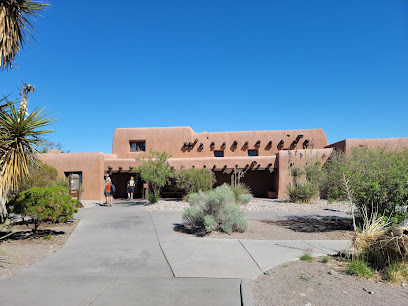
McGinn's PistachioLand Home of the World's Largest Pistachio
Explore McGinn's PistachioLand, where the world's largest pistachio awaits you in a delightful and tasty adventure in New Mexico.
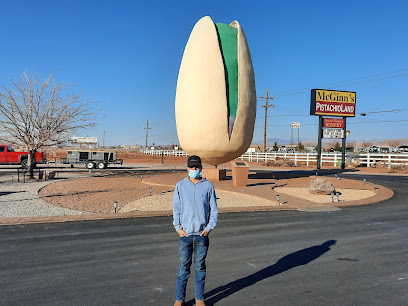
Lincoln National Forest
Discover the natural beauty and outdoor adventures awaiting you in Lincoln National Forest, New Mexico's pristine wilderness gem.
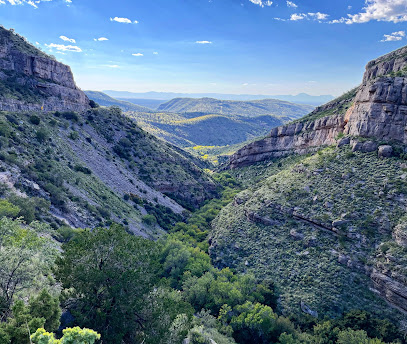
Heart of the Desert Pistachios & Wine
Explore the Heart of the Desert, where fine wines and fresh pistachios meet stunning New Mexico landscapes for a memorable experience.
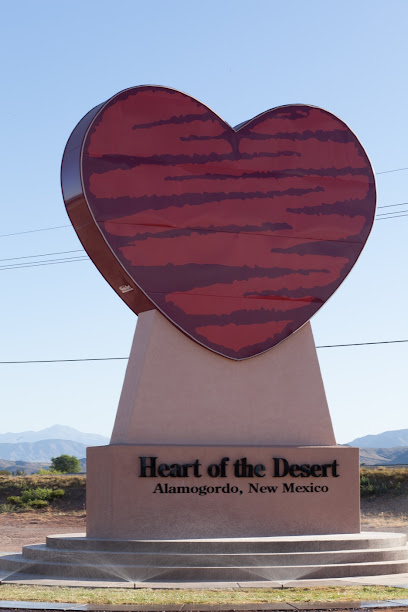
Dripping Springs Natural Area
Discover the breathtaking landscapes and rich history of Dripping Springs Natural Area, a premier hiking destination in Las Cruces, New Mexico.
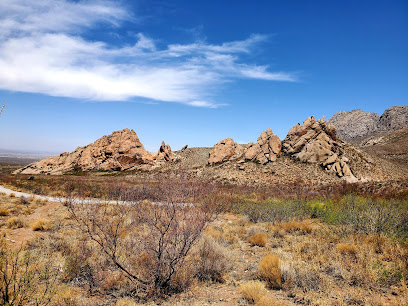
Alameda Park Zoo
Explore the Alameda Park Zoo in Alamogordo, NM, where rescued animals and conservation efforts create an unforgettable wildlife experience.
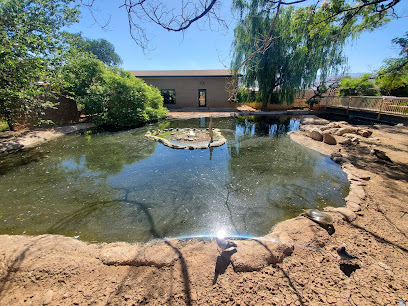
Tunnel Vista Observation Site
Experience the stunning vistas of the Tunnel Vista Observation Site in Cloudcroft, New Mexico, where nature's beauty unfolds in panoramic views.
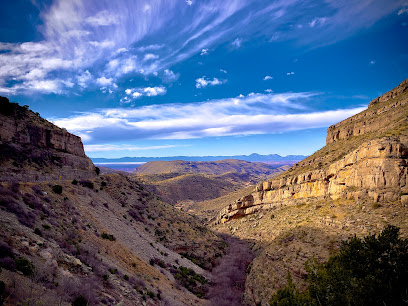
Oliver Lee Memorial State Park
Experience the stunning natural beauty and rich history of Oliver Lee Memorial State Park, a must-visit destination for nature lovers and outdoor enthusiasts in New Mexico.
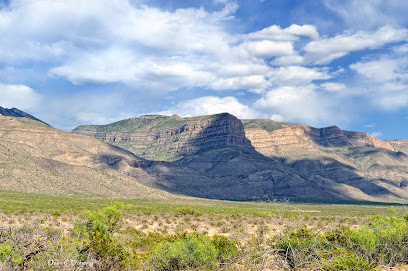
White Sands Missile Range Museum
Discover the fascinating history of space and military technology at the White Sands Missile Range Museum, a key cultural landmark in New Mexico.
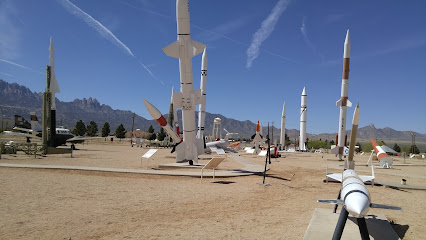
Toy Train Depot
Explore the enchanting world of toy trains at the Toy Train Depot in Alamogordo, New Mexico, a delightful museum for all ages.
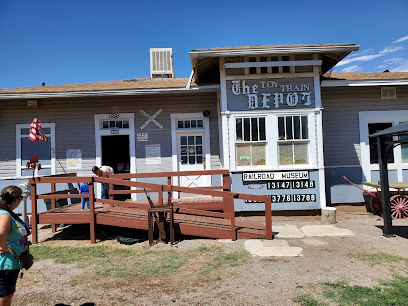
Interdune Boardwalk
Explore the breathtaking Interdune Boardwalk in Tularosa, NM, where stunning desert landscapes meet educational experiences in nature.
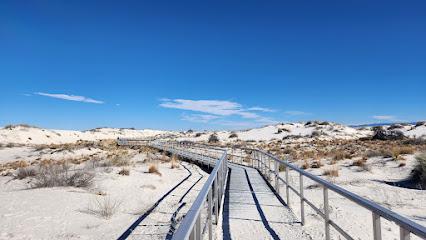
Interdune Boardwalk
Discover the breathtaking beauty of the Interdune Boardwalk in Tularosa, NM, a unique hiking area amidst stunning desert landscapes.
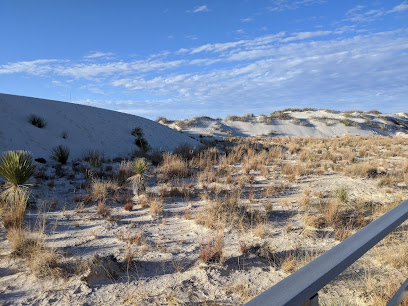
Hemmerly Desert Foothills Park
Explore the natural beauty of Hemmerly Desert Foothills Park in Alamogordo, NM, where adventure and tranquility meet in a stunning desert landscape.
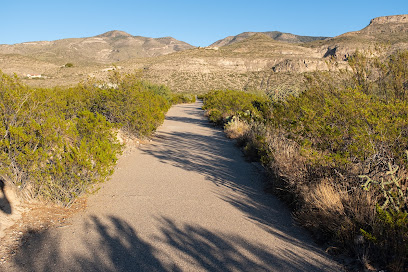
Alkali Flat Trailhead
Explore the breathtaking Alkali Flat Trailhead in New Mexico, where stunning landscapes and unique geological formations await outdoor enthusiasts and nature lovers.
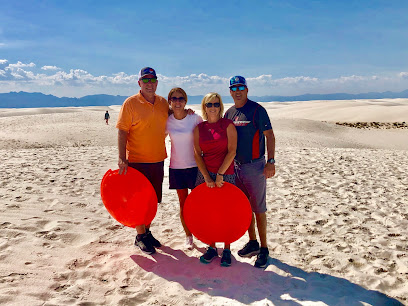
Tularosa Basin Museum of History
Explore the rich history of New Mexico at the Tularosa Basin Museum of History, featuring exhibits on Native American culture and local geology.
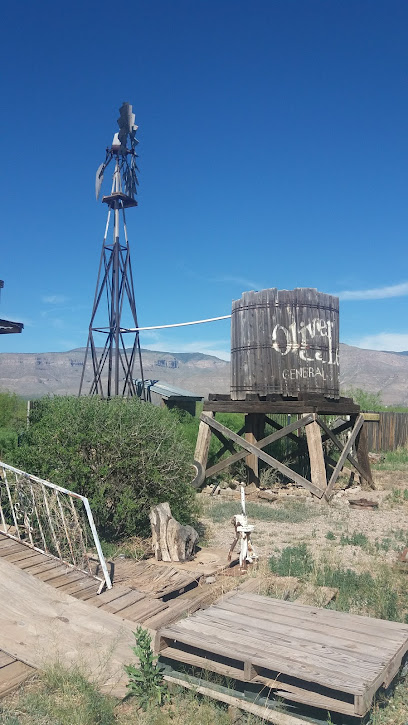
Essential places to dine
Hi-D-Ho Drive In
Delight in classic American fast food at Hi-D-Ho Drive In in Alamogordo—home of mouthwatering hamburgers and nostalgic vibes.
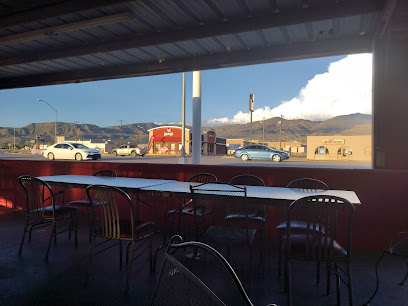
Buckhorn Tavern
Discover the essence of American dining at Buckhorn Tavern in San Antonio, NM—home of mouthwatering burgers and warm hospitality.
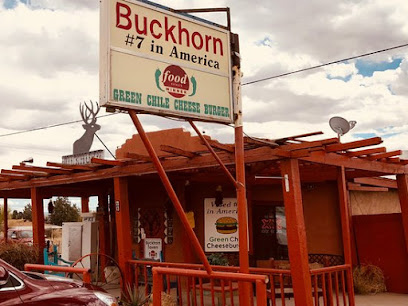
Blake's Lotaburger
Discover the iconic Blake's Lotaburger in Alamogordo for delicious burgers and American comfort food served in a vibrant atmosphere.
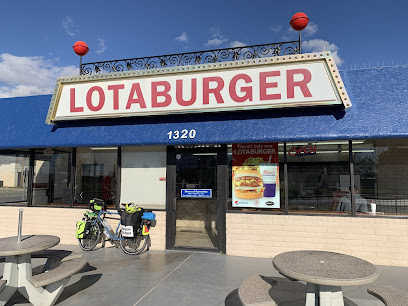
Waffle & Pancake Shoppe
Experience delicious breakfast at Waffle & Pancake Shoppe in Alamogordo – a family-friendly gem known for its delightful pancakes and waffles.
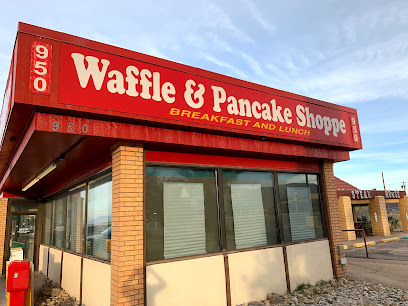
McDonald's
Experience the classic fast food delight at McDonald's in Alamogordo—perfect for breakfast lovers and burger enthusiasts alike.
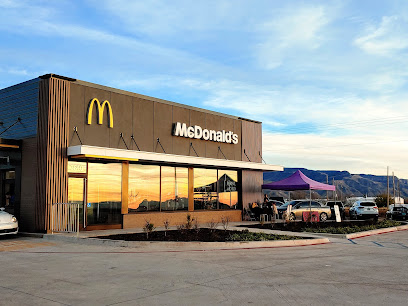
Wendy's
Experience delicious fast food at Wendy's in Alamogordo – home of fresh ingredients and iconic square burgers.

La Hacienda Mexican Restaurant
Experience authentic Mexican flavors at La Hacienda Mexican Restaurant in Alamogordo - where every dish tells a story.
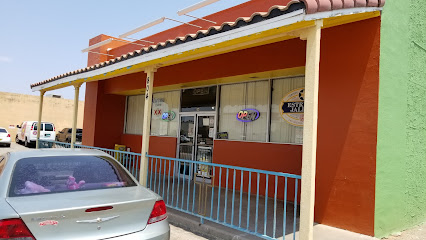
Y’alls Steakhouse-Alamogordo
Discover the ultimate steak experience at Y’alls Steakhouse in Alamogordo - where flavor meets hospitality.
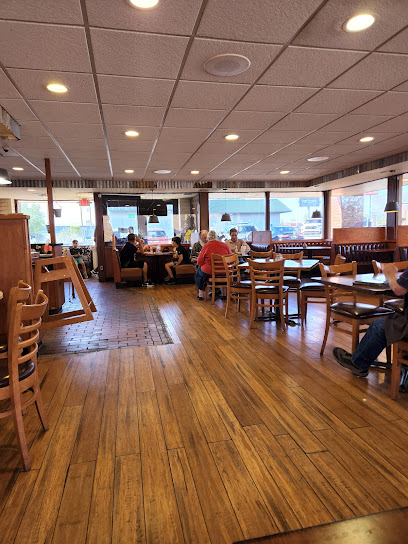
Rocket National Buffet
Experience an exquisite array of Chinese delicacies at Rocket National Buffet in Alamogordo, NM—where flavor meets variety!

Papa Johns Pizza
Experience delicious pizza made with fresh ingredients at Papa John's in Alamogordo - the perfect meal after exploring New Mexico's stunning landscapes.
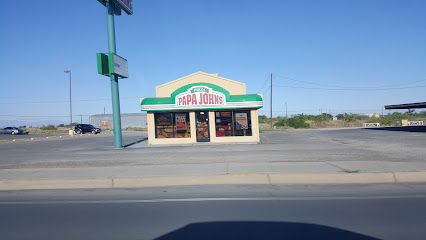
Subway
Enjoy fresh sandwiches and quick bites at Subway located within the stunning White Sands Missile Range – perfect for all adventurers!

Markets, malls and hidden boutiques
White Sands National Park
Discover the enchanting beauty of White Sands National Park, where stunning white dunes meet endless skies in New Mexico's breathtaking natural landscape.
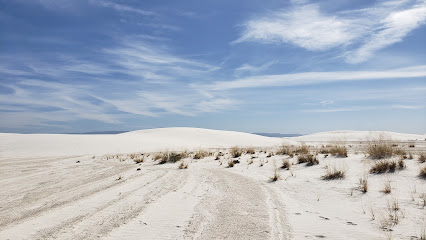
White Sands Visitor Center
Explore the stunning landscapes and unique exhibits at the White Sands Visitor Center, your gateway to New Mexico's natural wonder.
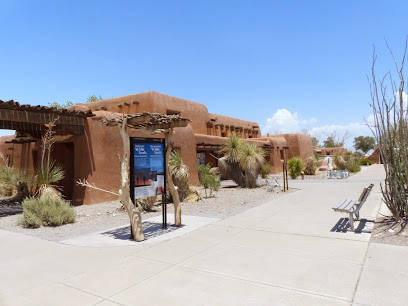
White Sands Mall
Explore White Sands Mall: A shopping haven in Alamogordo offering diverse shops, delicious dining, and a vibrant atmosphere for all visitors.

Hobby Lobby
Explore your creativity at Hobby Lobby, the ultimate destination for crafts, home goods, and DIY inspiration in Alamogordo, New Mexico.

Bowlin's Running Indian at Alamogordo
Explore the unique gifts and local crafts at Bowlin's Running Indian, Alamogordo's charming shop celebrating Southwestern culture.
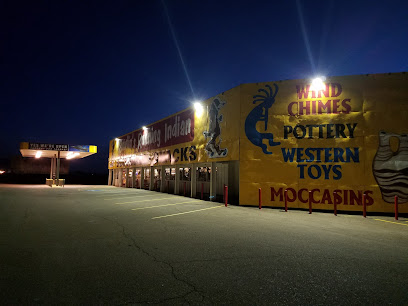
Burkes Outlet
Discover amazing deals on clothing, home goods, and shoes at Burkes Outlet, Alamogordo's premier shopping destination for savvy travelers.

Billy the Kid Gift Shop
Explore the unique treasures of the Billy the Kid Gift Shop in Mesilla, where history and local culture come together in a delightful shopping experience.
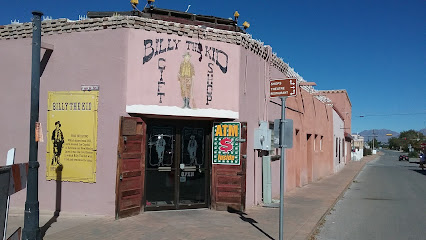
Pistachio Tree Ranch Country Store
Discover the delightful flavors and unique gifts at Pistachio Tree Ranch Country Store in Alamogordo, NM, a perfect stop for every traveler.
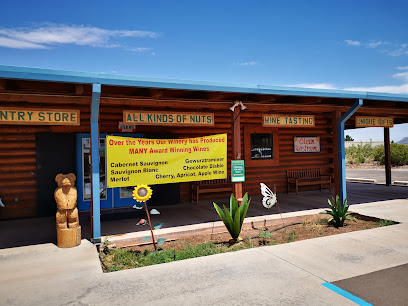
Sam's Gift Shop
Discover unique souvenirs and top-quality tobacco products at Sam's Gift Shop in Alamogordo, New Mexico.

King's Treasure
Explore King's Treasure in Alamogordo, NM, where unique second-hand finds and sustainable shopping come together to create an unforgettable experience.

The Blue Stone
Explore The Blue Stone, a treasure trove of handcrafted jewelry in Alamogordo, New Mexico, showcasing local artistry and unique designs.
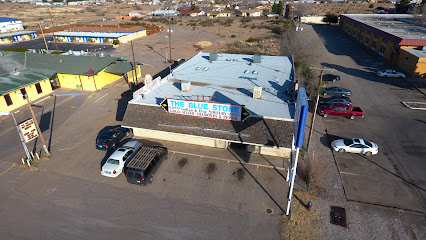
Ross Dress for Less
Experience unbeatable fashion deals at Ross Dress for Less in Alamogordo, NM, where quality meets affordability for the savvy shopper.

Marshalls
Discover unbeatable deals on clothing, luggage, and more at Marshalls in Alamogordo, where style meets affordability for every traveler.

Dollar Boots & Jeans
Explore Dollar Boots & Jeans in Alamogordo - your go-to spot for quality men's clothing, denim, and authentic Southwest style.

Off the Beaten Path
Discover unique souvenirs and local crafts at Off the Beaten Path gift shop in Cloudcroft, New Mexico, capturing the heart of your travels.
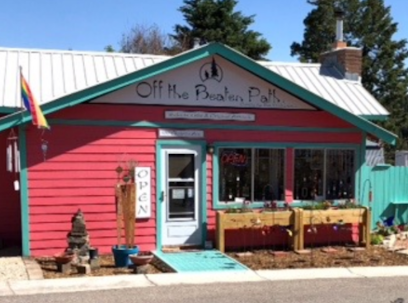
Essential bars & hidden hideouts
White Sands Visitor Center
Explore the stunning White Sands Visitor Center, your gateway to the breathtaking beauty and unique ecosystems of White Sands National Park.
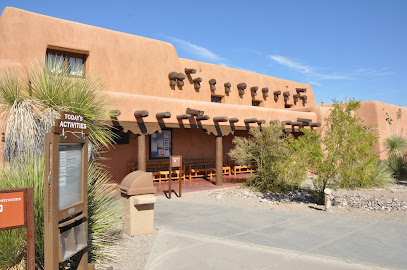
Twin Peaks
Twin Peaks Albuquerque: A vibrant sports bar serving delicious American cuisine in an energetic atmosphere, perfect for sports lovers and casual diners.
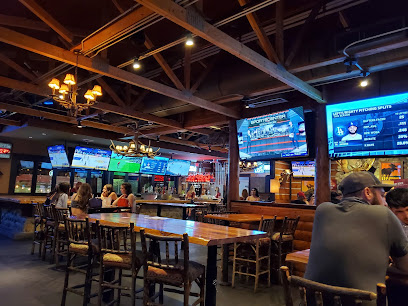
Hi-D-Ho Drive In
Discover the flavor of classic American fast food at Hi-D-Ho Drive In, home of the best green chile cheeseburger in Alamogordo, New Mexico.
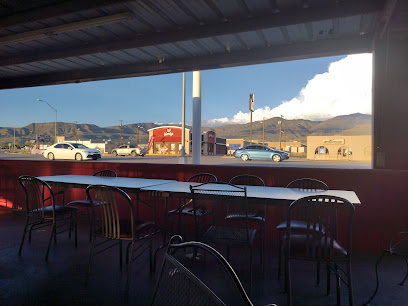
Buckhorn Tavern
Experience the best of American cuisine at Buckhorn Tavern, a beloved hamburger restaurant in San Antonio, New Mexico.
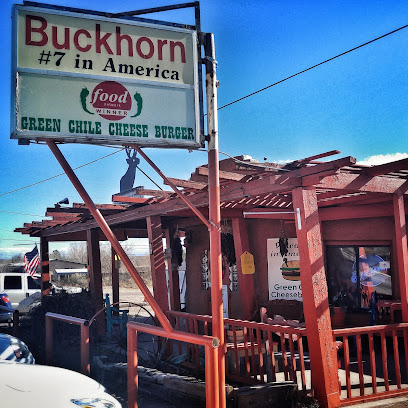
Blake's Lotaburger
Discover the taste of New Mexico at Blake's Lotaburger, where delicious burgers and American classics await every visitor.
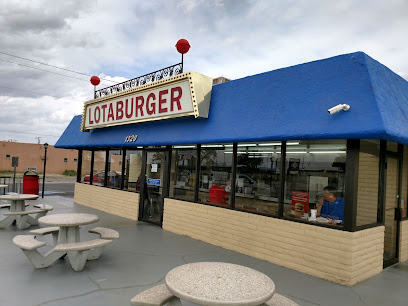
Lucky Bull Grill
Experience the best of Carlsbad dining at Lucky Bull Grill, where local flavors and a welcoming atmosphere come together for an unforgettable meal.
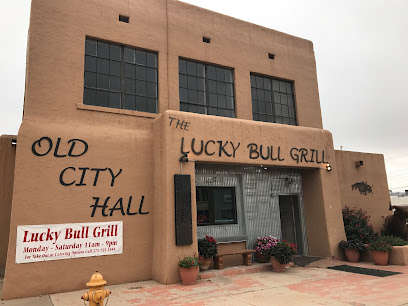
Rizo's Restaurant
Savor the vibrant flavors of Mexico at Rizo's Restaurant in Alamogordo, where every meal is a festive celebration of culinary tradition.
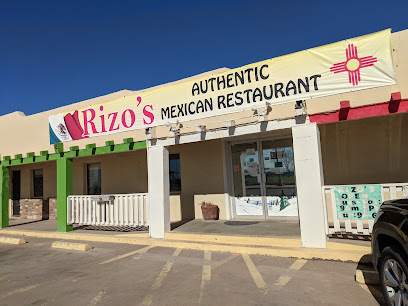
McDonald's
Explore Alamogordo: Enjoy delicious breakfast, burgers, and coffee at McDonald's, the perfect stop for travelers of all ages.

D. H. LESCOMBES WINERY & BISTRO
Explore the flavors of New Mexico at D. H. Lescombes Winery & Bistro - where fine wines meet exquisite cuisine in a vibrant setting.

Wendy's
Discover the fast food haven of Wendy's in Alamogordo, NM, where fresh ingredients and quick service meet for a satisfying meal.
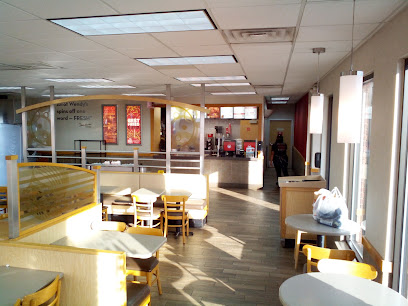
Zebs Restaurant & Bar
Discover Zebs Restaurant & Bar: A charming American eatery in Angel Fire, New Mexico, serving barbecue, seafood, and more in a warm atmosphere.
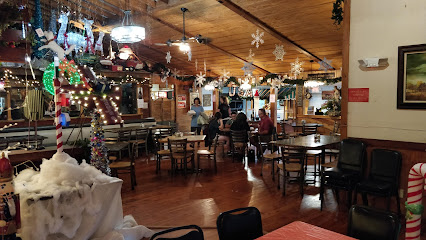
Rockin' BZ Burgers
Indulge in mouthwatering burgers at Rockin' BZ Burgers, the perfect stop for travelers near White Sands National Monument.
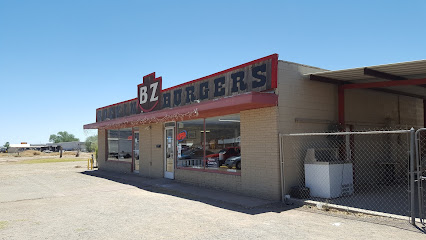
La Hacienda Mexican Restaurant
Experience the authentic taste of Mexico at La Hacienda Mexican Restaurant in Alamogordo, NM, where flavorful dishes meet vibrant culture.
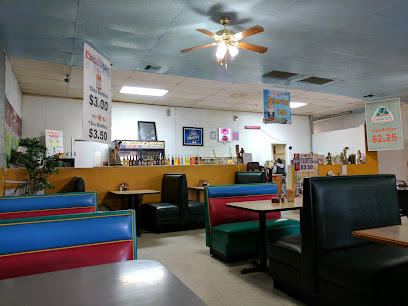
Y’alls Steakhouse-Alamogordo
Experience the best steaks in Alamogordo at Y’alls Steakhouse, where great taste meets warm hospitality in New Mexico.
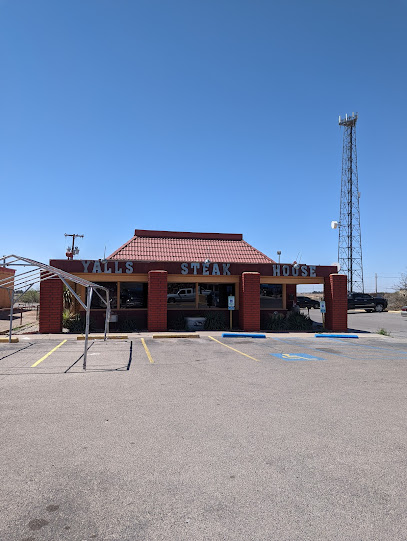
Enchanted Circle Brewing Company
Experience craft beer and delicious cuisine at Enchanted Circle Brewing Company, a must-visit brewpub in the heart of Angel Fire, New Mexico.
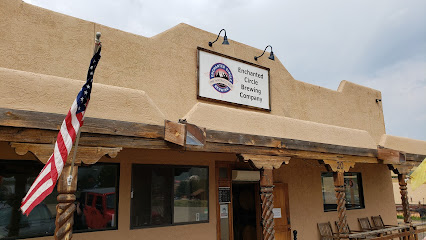
Local Phrases about White Sands National Park
-
- HelloHowdy
[hah-dee] - GoodbyeAdios
[ah-dee-ohs] - YesSi
[see] - NoNo
[noh] - Please/You're welcomePor favor/De nada
[por fah-vohr/deh nah-dah] - Thank youGracias
[grah-see-ahs] - Excuse me/SorryPerdón/Lo siento
[pehr-dohn/loh see-ehn-toh] - How are you?Cómo estás?
[koh-moh ehs-tahs] - Fine. And you?Bien. Y tú?
[bee-ehn/ee too] - Do you speak English?Hablas inglés?
[ah-blahs een-glays] - I don't understandNo entiendo
[noh ehn-tee-ehn-doh]
- HelloHowdy
-
- I'd like to see the menu, pleaseMe gustaría ver el menú, por favor
[meh goos-tah-ree-ah behr ehl meh-noo/por fah-vohr] - I don't eat meatNo como carne
[noh koh-moh kahr-neh] - Cheers!Salud!
[sah-lood] - I would like to pay, pleaseMe gustaría pagar, por favor
[meh goos-tah-ree-ah pah-gahr/por fah-vohr]
- I'd like to see the menu, pleaseMe gustaría ver el menú, por favor
-
- Help!Ayuda!
[ah-yoo-dah] - Go away!Vete!
[veh-teh] - Call the Police!Llama a la policía!
[yah-mah ah lah poh-lee-see-ah] - Call a doctor!Llama a un médico!
[yah-mah ah oon meh-dee-koh] - I'm lostEstoy perdido
[ehs-toy pehr-dee-doh] - I'm illEstoy enfermo
[ehs-toy ehn-fehr-moh]
- Help!Ayuda!
-
- I'd like to buy...Me gustaría comprar...
[meh goos-tah-ree-ah kohm-prahr] - I'm just lookingSólo estoy mirando
[soh-loh ehs-toy meer-ahn-doh] - How much is it?Cuánto cuesta?
[kwan-toh kwes-tah] - That's too expensiveEso es demasiado caro
[eh-soh ehs deh-mah-syah-doh kah-roh] - Can you lower the price?Puedes bajar el precio?
[pweh-dehs bah-hahr ehl pree-syoh]
- I'd like to buy...Me gustaría comprar...
-
- What time is it?Qué hora es?
[keh oh-rah ehs] - It's one o'clockEs la una
[ehs lah oo-nah] - Half past (10)Y media (10)
[ee meh-dee-ah/dee-ehs] - MorningMañana
[mah-nyah-nah] - AfternoonTarde
[tahr-deh] - EveningNoche
[noh-cheh] - YesterdayAyer
[ah-yehr] - TodayHoy
[oy] - TomorrowMañana
[mah-nyah-nah] - 1Uno
[oo-noh] - 2Dos
[dohs] - 3Tres
[trehs] - 4Cuatro
[kwah-troh] - 5Cinco
[seen-koh] - 6Seis
[says] - 7Siete
[see-eh-teh] - 8Ocho
[oh-choh] - 9Nueve
[nweh-veh] - 10Diez
[dyehs]
- What time is it?Qué hora es?
-
- Where's a/the...?Dónde está el/la...?
[dohn-deh ehs-tah ehl/lah] - What's the address?Cuál es la dirección?
[kwahl ehs lah dee-rehk-syohn] - Can you show me (on the map)?Me puedes mostrar (en el mapa)?
[meh poo-dehs moh-strahr/en ehl mah-pah] - When's the next (bus)?Cuándo es el próximo (autobús)?
[kwan-doh ehs ehl proh-ksee-moh/ow-toh-boos] - A ticket (to ....)Un boleto (a ....)
[oon boh-leh-toh/ah]
- Where's a/the...?Dónde está el/la...?
History of White Sands National Park
-
White Sands National Park is home to the largest gypsum dunefield in the world. These dunes formed over thousands of years from the remnants of an ancient sea that evaporated, leaving behind gypsum deposits. Wind and water slowly broke these deposits down into fine grains, creating the dazzling white dunes we see today.
-
Long before it became a national park, the area around White Sands was inhabited by various Native American groups, including the Mescalero Apache. These indigenous peoples lived off the land, hunting, gathering, and utilizing the natural resources of the region. Petroglyphs and ancient tools found in the area offer a glimpse into their lives and cultures.
-
In the 16th century, Spanish explorers, including Francisco Vásquez de Coronado, ventured into the region in search of the legendary Seven Cities of Gold. Though they did not find the riches they sought, their expeditions marked the beginning of European influence in the area.
-
During the late 19th and early 20th centuries, settlers attempted to homestead the challenging environment of the Tularosa Basin. They faced extreme conditions, including limited water resources and harsh weather. Some remnants of these early homesteads can still be seen in the park.
-
White Sands was designated a National Monument on January 18, 1933, by President Herbert Hoover. This designation aimed to protect the unique geological features and the diverse flora and fauna of the area. The park has since become a popular destination for tourists and researchers alike.
-
During World War II, the nearby White Sands Missile Range was established as a testing site for rockets and missiles. The Trinity Site, where the first atomic bomb was detonated in 1945, is also located within the missile range. This military presence has had a lasting impact on the region's history and development.
-
On December 20, 2019, White Sands was re-designated as a National Park, recognizing its national significance and ensuring greater protection and funding for its preservation. This change has helped to boost tourism and awareness of the park's unique natural and cultural heritage.
White Sands National Park Essentials
-
White Sands National Park is located in southern New Mexico. The nearest major airport is El Paso International Airport (ELP), approximately 85 miles away. From El Paso, you can rent a car and drive to the park, which takes about 1.5 hours. Alternatively, you can fly into Albuquerque International Sunport (ABQ), which is around 224 miles from the park. From Albuquerque, driving takes roughly 3.5 hours. There are also bus services from nearby cities to Alamogordo, the closest town to the park, but car rental is recommended for convenience.
-
The best way to explore White Sands National Park is by car. The park has a scenic 8-mile Dunes Drive that allows you to experience the beauty of the dunes from your vehicle. There are no public transportation options within the park, so a rental car is essential. Alamogordo, the nearest town, has several car rental agencies and taxi services. Bicycles are permitted on park roads but are not recommended on the dunes due to the challenging terrain.
-
The currency used is the US Dollar (USD). Credit and debit cards are widely accepted at the park's visitor center and in Alamogordo. It is advisable to carry some cash for smaller establishments and for entry fees if card machines are down. ATMs are available in Alamogordo. The park entrance fee can be paid by card or cash.
-
White Sands National Park is generally a safe destination. However, it is important to stay hydrated due to the hot and dry desert climate. Carry plenty of water, sunscreen, and wear a hat and sunglasses. Cell phone reception can be unreliable within the park, so inform someone of your plans before venturing out. Alamogordo is a safe town, but like any place, avoid walking alone at night in unfamiliar areas and secure your belongings.
-
In case of an emergency, dial 911. The park has a visitor center with basic first aid supplies. For more serious medical situations, the nearest hospital is Gerald Champion Regional Medical Center in Alamogordo, about 15 miles from the park. It is advisable to have travel insurance that covers medical emergencies. Park rangers are also available for assistance during park hours.
-
Fashion: Do wear light, breathable clothing suitable for desert conditions. Avoid dark colors as they absorb heat. Don’t wear open-toed shoes; sand can get very hot. Religion: Respectful behavior is expected in all public places. There are no specific religious customs to observe, but always be courteous. Public Transport: No public transport is available within the park. Don’t rely on public transport to get around. Greetings: A simple 'hello' is customary. When meeting park staff, a friendly greeting is appreciated. Eating & Drinking: Do bring your own food and water. There are picnic areas available. Don’t leave trash behind; pack out all your waste.
-
To experience White Sands National Park like a local, visit early in the morning or late in the afternoon to avoid the heat and catch stunning sunrise or sunset views. Consider bringing a sled; the gypsum dunes are perfect for sledding. Stop by the town of Alamogordo to explore local attractions such as the New Mexico Museum of Space History. Engage with park rangers; they provide valuable insights and may share lesser-known spots to visit. Don’t miss the annual White Sands Balloon Invitational if you visit in September.
Nearby Cities to White Sands National Park
-
Things To Do in Las Cruces
-
Things To Do in Ruidoso
-
Things To Do in Truth or Consequences
-
Things To Do in El Paso
-
Things To Do in Socorro
-
Things To Do in Roswell
-
Things To Do in Albuquerque
-
Things To Do in Bernalillo
-
Things To Do in Santa Fe
-
Things To Do in Sante Fe
-
Things To Do in Las Vegas
-
Things To Do in Los Alamos
-
Things To Do in Bisbee
-
Things To Do in Gallup
-
Things To Do in Midland



